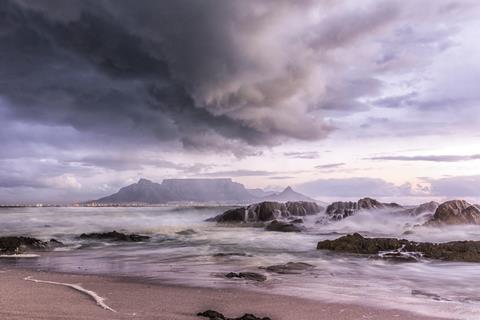Some of the country’s ports are closed for safety reasons as winter storms whip across the South African coast
Winter storms along South Africa’s west and east coast have disrupted operations to such an extent that the transport authority, Transnet, had ordered the temporary suspension of ship movement.

This followed severe weather warnings in these areas with gale force winds, heavy rain and flooding predicted.
The bad winter weather hit Cape Town and the Western Cape over the weekend, and is expected to intensify. Heavy snowfall has been reported over Cape mountain regions and as far as the normally dry Great Karoo landscape.
Transnet has suspended shipping movement at some ports in the Western and Eastern Cape for safety reasons, namely Cape Town, Saldanha, Port Elizabeth and Ngquru.
The Cape Town Container Terminal, which is experiencing high swells until Saturday, has three vessels on berth that are unable to work due to the terminal’s wind-bound status.
In Gqeberha, the Ngqura Container Terminal had its last vessel finish in the early hours of Sunday morning.
“The port authority resolved on not berthing any more vessels until Wednesday and port terminal gates have been closed since,” said Transnet.
All the ports, except Saldanha, are key export ports.
In the Cape citrus regions along the west coast growers will be unable to harvest this week. Packing activities are also affected.
Summer Citrus Association spokesperson Boet Mouton said while it was inconvenient for the citrus sector to deal with the bad weather at the peak of their season, they were still maintaining supply.
“We do not know what the effect will be on our export operations, but it is likely to occur over the next months,” he said. One vessel due to load for the US market has been cancelled.
The table grape, apple and pear, and stonefruit seasons are currently in their winter phase and unless there is structural damage the growers will probably welcome the cold and rain.
With enough water running into dams and enough winter rest, they can look forward to a quality season later on.



